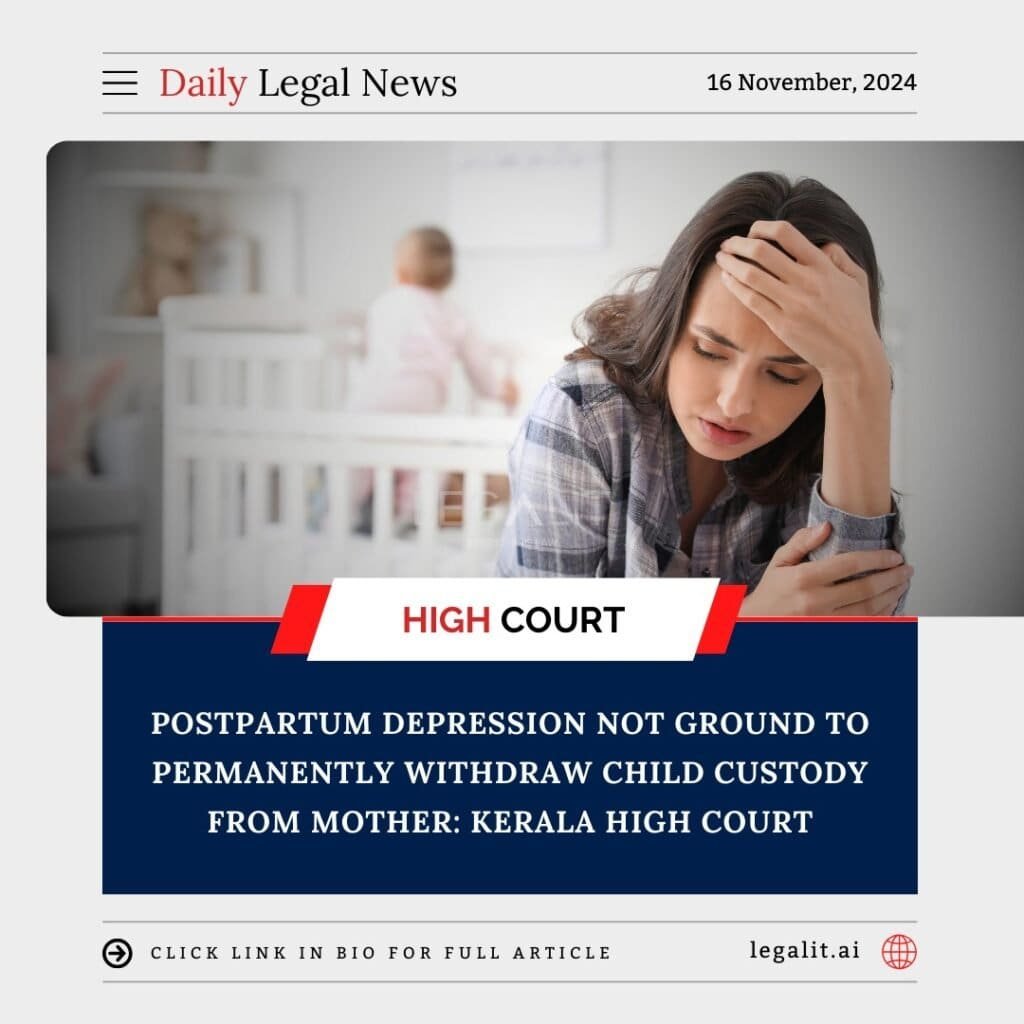
The Kerala High Court has ruled that postpartum depression cannot be a valid reason to permanently withdraw a child’s custody from the mother. The court emphasized that mental health issues, if managed and treated effectively, should not undermine a mother’s right to care for her child.
Background:
The case involved a custody dispute where the father argued for the mother’s unfitness to care for the child, citing her history of postpartum depression. The mother countered by providing evidence of her recovery and capability to take care of the child. The family court had initially granted custody to the father, leading to the mother appealing to the High Court.
Court’s Rationale:
The Kerala High Court acknowledged that postpartum depression is a temporary mental health condition and does not inherently affect a mother’s long-term parenting abilities. It stressed the need to evaluate the present mental and physical well-being of the mother rather than relying solely on past medical conditions. The court highlighted that the paramount consideration in custody cases is the welfare of the child, which includes maintaining a bond with the mother unless there is conclusive evidence of her inability to provide care.
Existing Measures:
The court referred to established legal principles where custody decisions prioritize the child’s welfare. It also underscored the importance of providing support and medical assistance to mothers dealing with postpartum depression, rather than penalizing them by taking away custody. Existing child custody laws advocate for shared parenting arrangements whenever feasible.
Conclusion:
The Kerala High Court’s decision reinforces that temporary health issues, such as postpartum depression, should not be a decisive factor in denying a mother custody of her child. The judgment underscores the judiciary’s commitment to ensuring that decisions in custody disputes are made in the best interests of the child, while also respecting the rights and dignity of the parents involved.